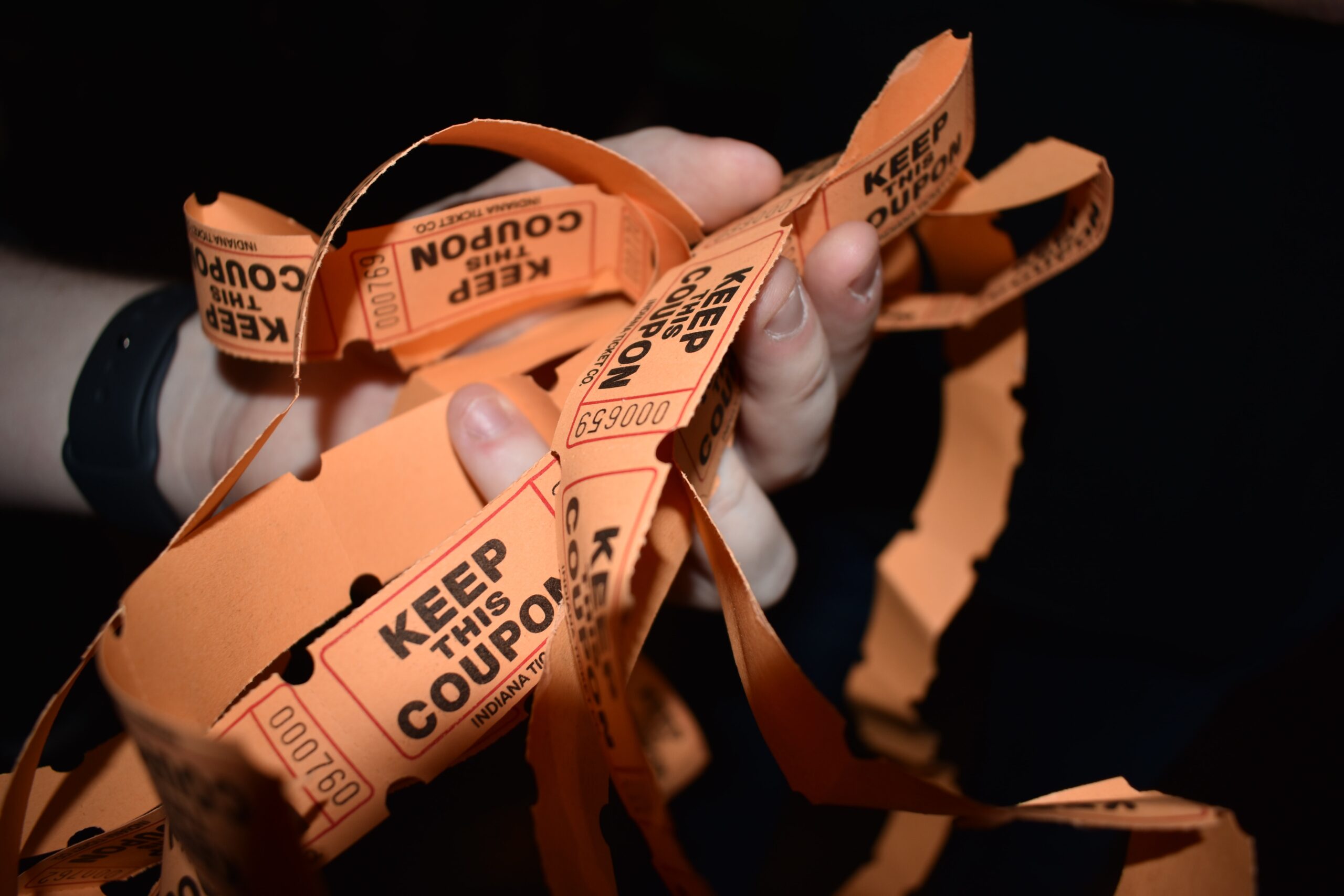I forgot the tickets. It’s not the totality of the end of all things, but in the story that I’m creating in my brain it’s at least the beginning of it. I’m heading into my fourth workshop for middle schoolers and one of the things that is a driving force of student participation is tickets for the arcade-style prizes awaiting them in the last workshop! I’m sure this all sounds a bit crazy, so let me explain.
Workshop participants get 2 tickets each week for just showing up, but there’s many other ways to earn tickets during the workshops. If you ask questions about emotions, stand up and demonstrate what an emotion looks like, describe where you feel emotions in your body, basically any time a student has the courage to speak up and participate in the workshop they earn tickets. Why are these tickets compelling enough to get a 7th grader to stand up and speak in front of his peers? Well, if you’re close to my age you remember the old arcades where you earned tickets as you played each game and they could be traded in for all kinds of ridiculous toys, games, stuffed giraffes, candy, etc? Well that’s what they are getting. Unfortunately, none of this is possible if I forget what? The tickets. That’s right, we’re back to that.
In a situation like this, my inner critic has a field day, that voice we all have inside of us that is always feeding us fear, anxiety, and especially self-doubt in this case. “How could you do this!” it shrieks, “Just keep them in the car!” And, of course, “What is going to happen when you walk in there without those tickets!!!”
The anxiety and negative self talk are overwhelming. Overwhelming to the point where I can’t think of a solution. Mostly because I don’t want to feel them. And, if I don’t want to feel them, rest assured I’m working seriously hard at ignoring them. I mean I already know I forgot the tickets, I don’t need to be punished a thousand times by feeling all of that uncomfortability, right?! I just want those emotions to go away. But the truth is…
I actually have to feel them.
An emotion is basically a biological signal giving us information that we can choose to either act on or discard. But for us to gain the clear thinking that enables us to decide whether the information the emotion is giving is useful or not, the emotion first needs to be acknowledged.
The major factor enabling an uncomfortable emotion to come and go quickly is letting go of our emotional prejudices. We may unknowingly believe that, if an emotion feels bad, it’s not useful to me, or if an emotion feels good then it must be good for me. Unfortunately, that’s not the case. Every emotion, even the ones we want to duck and run from (maybe especially those! ) serve a purpose.
Elizabeth Scott, author of “8 Keys to Stress Management”, who specializes in emotional wellbeing, and health psychology, says, “More often, these [difficult] feelings are beneficial because they can also send us messages. For example: anger and anxiety show that something needs to change and that perhaps our well-being has been threatened. Fear is an appeal to increase your level of safety. Frustration or resentment motivates us to change something in a relationship.” Just knowing that these uncomfortable emotions can be useful makes us more open to listening to them, which in turn, has them leave quicker and decreases their intensity.
I still myself and honor the fact that I’m a little anxious about going in there without the roll of tickets. Even just saying that to myself gives me some mental space to think about what I might actually do. I remember that some students have told me about losing their tickets. It would probably be better to move over towards a system where they write down the amount of tickets on their workshop sheet, so they know what they have earned to trade for prizes in two weeks… After all, I wouldn’t want to short-change any of my participants for their hard work over the last five weeks when it comes to prizes :). I can chock forgetting the tickets up to the fact that I was feeling a bit of anxiety for half an hour before going into my workshop. But I also need to acknowledge that the pressure from that anxiety also caused me to develop a better system for me AND the students. Now, I’m off to the fourth workshop to help the students learn how to create the emotions that they want for themselves!
If you would like to learn to fully experience life, reduce your emotional isolation, lessen your avoidance of shame, fear, and anxiety, to reach your goals, break old habits, or create new ones, I can help. We can meet virtually or in person at my office in Waterbury, Vermont. Just click the button or the link below for a free consultation and let’s talk.




